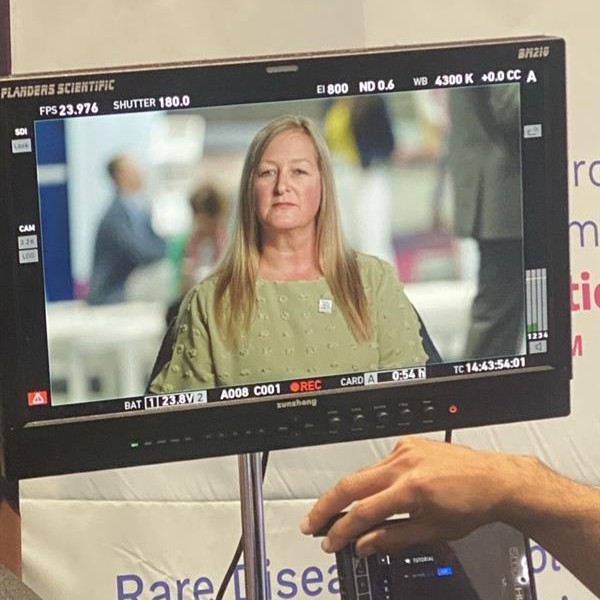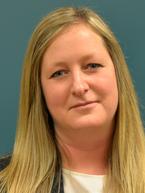
The evolution of oncology clinical trials dates back hundreds if not thousands of years, but today they’re more than a cornerstone of cancer research — they offer patients hope across the cancer care continuum.
Margaret Ferreira, research program director at Northside Hospital, attended the American Society of Clinical Oncology (ASCO) 2025 conference in Chicago, Illinois, earlier this year, where clinical investigators revealed the latest oncology research findings, attendees discussed the most recent updates on treatments and heard discussions from leading experts on clinical practice, policy and patient care.
In the Q&A below, Ferreira shared her reflections on the conference and Northside Hospital’s role in clinical oncology research in a community hospital setting.
What value is there for Northside at large-scale medical conferences like ASCO?
Ferreira: Attending events like ASCO provides us with early insights into the current state of the oncology industry. Here we are presented with practice-changing data that may lead to fast-track approvals and shifts in treatment guidelines, which may directly benefit our patients through early access to treatment innovations and emerging therapies.
The conference also offers valuable networking opportunities with oncologists, scientists and pharmaceutical companies, helping us establish partnerships and recruit top talent for multicenter research projects, while also equipping our doctors with tools to match therapies to patients’ unique genetic profiles, resulting in quicker access to clinical trials that can lead to FDA approvals and expanded treatment options for our patients.
Not every community hospital with a cancer focus participates in events like this, but for us we find it's essential to bring the most advanced therapies into the community setting.
Tell me about NHCI and its focus on cancer research as a community hospital.
Ferreira: Northside Hospital Cancer Institute (NHCI) is one of the largest and most comprehensive cancer care programs in Georgia. It was Georgia’s first cancer program to offer commercially available tumor-infiltrating lymphocyte (TIL) therapy for relapsed/refractory malignant melanoma, which was FDA-approved in 2024. The Institute’s robust and established BMT and CAR (chimeric antigen receptor) T-cell program allows Northside to quickly and effectively onboard new commercial products, which present better access to treatments to the community. The Blood and Marrow Transplant Program was the first in Georgia to offer CAR T-cell therapy through clinical trials in 2017. CAR T-cell therapy has rapidly expanded since, and the program now offers seven FDA-approved products, which were all the result of clinical research trials.
The NHCI Cancer Research Program is also one of the largest community-based oncology/hematology programs in the nation and is one of the few cancer research programs in the country offering Phase 1-4 clinical trials. Our mission is to bring cutting-edge clinical trials to patients in a community care setting. We currently have more than 100 active trials to date, which aim to help our physicians, oncologists, surgeons and radiologists find new ways to offer cancer patients access to promising new treatments and improve their quality of life.
What do Phase 1-4 clinical trials mean for patients?
Ferreira: Clinical trials are research studies that test new ways to prevent, detect or treat diseases like cancer. At NHCI, patients have access to cancer trials across all four phases, and each has a different focus:
- Phase 1 trials are the first step in testing a new treatment in people. The main goal is to determine the safest dose and identify any side effects.
- Phase 2 trials look at whether the treatment works for a specific type of cancer, while continuing to monitor safety.
- Phase 3 trials compare the new treatment to the current standard treatment to see which works better and to further assess safety.
- Phase 4 trials occur after treatment is approved and available to the public. These trials track how well it works overtime and monitor any additional benefits or risks.
By offering all four phases of clinical trials, NHCI offers patients more options and opportunities to participate in research — whether they’re interested in trying out a new treatment, accessing therapies that are already well-established or a data collection/quality of life clinical trial.
Why is cancer research so important in a community setting?
Ferreira: We believe the best care happens close to home. That’s why we bring treatments right into the communities where our patients live. With five hospital campuses and nearly 500 outpatient locations across Georgia, care is more accessible and personalized. By weaving access to clinical trials into everyday care, we’re making it easier for local providers to offer alternative options, helping patients stay connected to their neighborhoods while receiving the latest innovations in medicine.
Patients diagnosed with cancer in a community setting often think they need to leave that care setting for clinical trials at an academic institution, but this is a myth. Tell me about this and how NHCI approaches the cancer patient journey.
 Ferreira: The cancer patient journey is not one you can or should take alone, which is why Northside created its team and comprehensive support network of oncology patient navigators, social workers, dietitians and genetic counselors who work together to create a seamless patient experience.
Ferreira: The cancer patient journey is not one you can or should take alone, which is why Northside created its team and comprehensive support network of oncology patient navigators, social workers, dietitians and genetic counselors who work together to create a seamless patient experience.
Being able to stay in one's community during cancer treatment isn't an option that is available to all patients. When patients choose NHCI for treatment or to participate in a clinical trial designed to target their specific cancer, they’re able to do so without leaving the comfort of their community. In addition, patients have access to the latest research, technology and treatments available.
Traditional cancer treatments used to mean that patients had to be at a certain stage to join a clinical trial. With NHCI, we offer trials for patients at all stages of their cancer journey, which is rare for a community-based program.
What support services (tools/resources) does NHCI provide that can help the patient during their cancer treatment/journey?
Ferreira: I believe healing is more than medicine, it’s about connection, and those connections are a big reason why patients trust and believe in Northside Hospital, its experts and the incredible tools and resources that we offer. Through our programs, patients can find someone to confide in, someone who understands what they're going through.
NHCI support and volunteer services are offered at our five Northside Hospital campuses in Atlanta, Canton, Cumming, Duluth and Lawrenceville. Our patient navigators are equipped with tools, training and local insights to help patients make the most of community partnerships that support their care journey, including connecting patients with transportation services, cultural advocacy groups, faith-based organizations or educational resources. Serving as trusted guides, our navigators help bridge the gap between complex health care systems and real-life support networks — ensuring you never walk through treatment alone.
What should patients know or ask for when considering a clinical trial as part of their treatment journey?
Ferreira: I always remind my patients that every treatment decision is a choice and is deeply personal. Clinical trial participation is voluntary, and you can stop anytime. There’s no “one-size-fits-all” path; it’s about defining benefit for oneself, really thinking about what benefit of participation means to them; finding the approach that aligns with their comfort level, values and health needs. As patients consider their options, here are a few key things to keep in mind:
- As NHCI offers access to a broad spectrum of Phase 1-4 clinical trials tailored to various cancer types and stages, it’s important to ask which clinical trials are currently available that could help treat your specific diagnosis.
- Each trial has specific requirements and criteria to determine who can participate. It's important to understand what tests/procedures may need to be performed after Informed Consent...
- Understand and weigh the potential benefits vs the possible risks and side effects of a clinical trial.
- NHCI's commitment to community-based research means you don’t need to travel far from home to receive innovative therapies. Speak with your provider about how your care will be coordinated if you participate in a clinical trial.
- NHCI uses genetic and biomarker data to create personalized therapy strategies for patients. Our genomics team, which includes an oncology pharmacist, molecular pathologist, research nurse, genetic counselor and medical oncologist — all collaborate together to support patient care with expert insights tailored to an individual’s biology.
What steps should a patient take to join a clinical trial or program in their community?
Ferreira: The best place to start is with your oncologist.
- Ask your provider/physician/doctor if there are clinical trials available for you to participate in.
- Call your insurance company to gain an understanding of your policy and if there is a clinical trial benefit or if there are any exclusions for clinical trials or “experimental/investigational” treatments. There may be limitations from insurance companies; however, the research team is skilled in working with insurance companies to obtain authorization.
- Search the organization’s website for clinical trials/research; almost every organization will include a list of current clinical trials available with a search function by disease.
- ClinicalTrials.gov is a federally funded database for all clinical trials that provides expansive search capabilities within your local community and throughout the country/world.
Learn more about Northside Hospital Cancer Institute.
Find active clinical trials at Northside.

